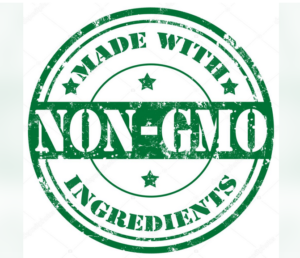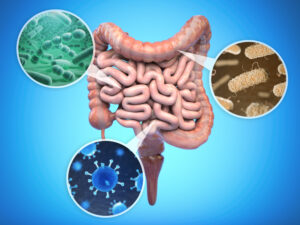Non-GMO vs. Organic: Making Sense of Food Labels

ARTICLE AT A GLANCE:
- Food labels can be confusing, so it’s important to understand what different phrases mean to buy the highest quality products to support optimal health
- Non-GMO signifies that the food was not genetically modified in a laboratory, while
- USDA Organic means that common pesticides and toxins were not used
- Whenever possible, choose food products that are USDA organic (which are also Non-GMO)
Food labels are not always easy to follow. Different legal definitions as well as marketing buzzwords can cause confusion, so it’s crucial to dive deeper into what certain terms actually mean so you can make smart purchasing decisions.
In the world of health and wellness, two popular terms that you’ve likely seen are “Non-GMO” and “USDA Organic.” Here’s what they mean and why they matter for your health:
Non-GMO signifies food that is made from ingredients that were not genetically modified, meaning they weren’t grown in a laboratory or otherwise chemically manipulated.
USDA Organic means the foods were not produced using certain pesticides and chemicals, including Round Up (Glyphosate), Hexane, or antibiotics.
The negative effects and risks of consuming both pesticides and genetically modified organisms (GMO foods) are well documented. Toxins found in herbicides can irritate the gut, increase inflammation, and have even been linked to cancer. Additionally, studies have shown that GMOs can cause organ damage, accelerated aging, infertility, and other problems.
In order to achieve optimal health and functioning, you’ll want to avoid both genetically modified foods as well as food products grown with pesticides. And here’s the trick: USDA organic foods are also non-GMO, while non-GMO foods are not necessarily USDA organic. So when in doubt, look for the USDA organic label to help you pick better options!
Eating organic and non-genetically modified foods can be more of a financial investment, but the pay-off makes it worth it: less doctor bills, less misdiagnoses, and of course greater peace and happiness for your child and your family.
*This website is provided for informational purposes only and is not intended as a substitute for the advice provided by a healthcare professional.
References
- How To Read Nutrition Labels
- What Fruits & Vegetables Should I Buy?
- Your child’s attention span, mood, and behavior may be the sign of an unhealthy gut
- Which Fruits & Vegetables should I buy?
- Ten Reasons To Avoid GMOs
- Pesticide Action Network- Cancer

A Revolutionary 5-1 Bio-Heal Probiotic
Helping Children Reach Their Full Potential
Click To Learn More
Join Our Community
Join the premier support group of parents, teachers, and caretakers dedicated to
Click To Learn More




